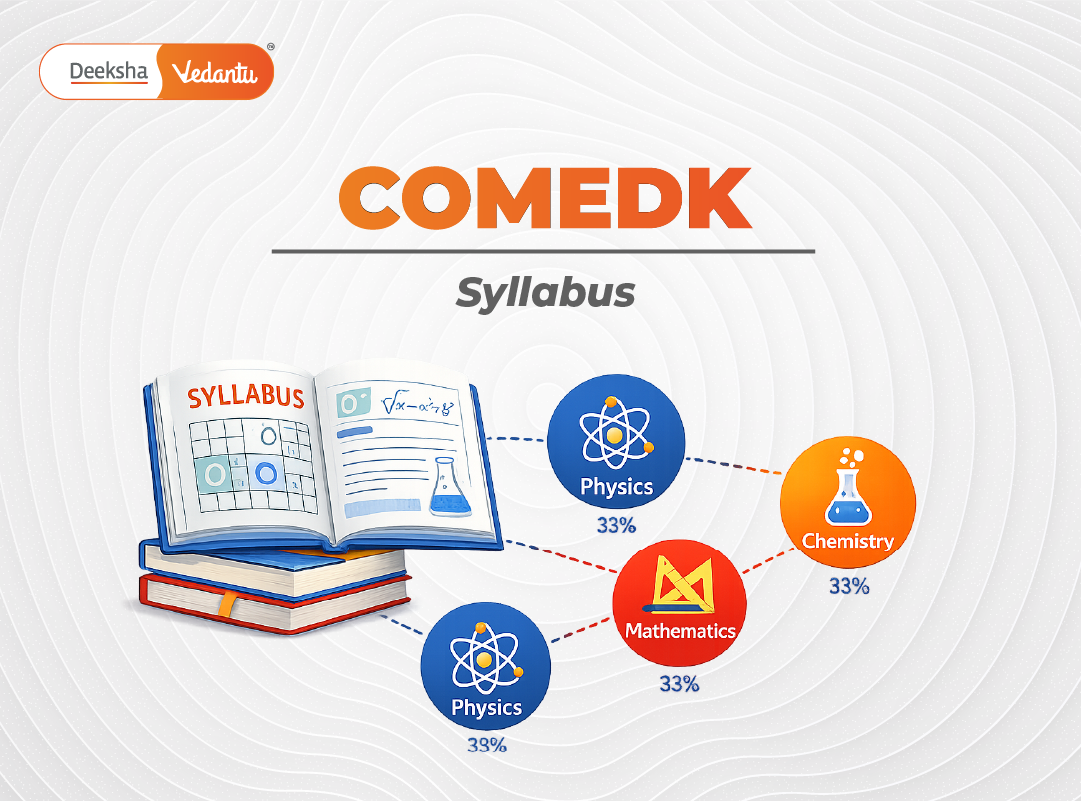Introduction
In NEET Biology, the chapter Human Health and Diseases is more than just a theoretical unit—it is a high-scoring section that often includes direct questions from NCERT. This chapter focuses on immunity, common human diseases, lifestyle disorders, and serious health issues like AIDS and cancer.
On average, 2 to 3 questions are asked from this chapter in the NEET exam every year. While that may not seem like much, these are often straightforward, factual, and concept-based, making them easy to attempt with proper preparation. Among all the topics covered, immunity, AIDS, and cancer are considered especially important due to their real-world relevance and high frequency in previous year papers.
Understanding Immunity
What is Immunity?
Immunity is the body’s defense mechanism that protects us from diseases by recognizing and responding to pathogens like bacteria, viruses, and toxins. The immune system is composed of various cells, tissues, and organs that work together to detect and neutralize harmful agents.
NEET frequently tests the types of immunity and their components. Understanding how the immune system operates provides a foundation for learning how diseases like AIDS affect the body.
Types of Immunity: Innate and Acquired
Immunity is broadly classified into two categories:
- Innate immunity: Present from birth; non-specific defense mechanism
- Acquired (adaptive) immunity: Developed after exposure to antigens; specific in nature
Innate immunity includes physical barriers like skin, physiological barriers like stomach acid, and cellular defenses like macrophages. This system does not change based on experience.
Acquired immunity is developed after encountering a specific pathogen. It involves lymphocytes and the production of antibodies. This is further divided into:
- Active immunity: Developed after infection or vaccination
- Passive immunity: Obtained by transferring antibodies (e.g., from mother to child or via immunoglobulin injections)
Components of the Immune System
The immune system involves:
- Lymphoid organs (thymus, spleen, lymph nodes)
- White blood cells (B-cells, T-cells, macrophages)
- Antibodies and antigens
- Cytokines and interleukins
Understanding how these elements function together is crucial to mastering both the theoretical and MCQ parts of NEET.
Vaccination and Immunization
Vaccination introduces a harmless form of an antigen to stimulate the immune response. Immunization is the process by which immunity is achieved, either through vaccination or natural infection.
This distinction is frequently tested in NEET, especially when understanding how vaccines like the MMR or Hepatitis B function.
Hypersensitivity and Allergic Responses
Allergic reactions occur when the immune system overreacts to harmless substances like pollen or dust. The release of histamine during allergic reactions is an important detail to remember.
Drugs like antihistamines are used to reduce the symptoms of hypersensitivity, and this part of the chapter is often tested in NEET through application-based questions.
Explore Deeksha Vedantu Long Term NEET Coaching to boost your NEET Scores today.
AIDS: Acquired ImmunoDeficiency Syndrome
What is AIDS and How It Affects the Immune System
AIDS is a condition where the immune system becomes severely weakened due to an HIV infection. HIV targets and destroys CD4+ T-cells, which are essential for mounting an effective immune response.
As a result, individuals with AIDS become susceptible to a variety of opportunistic infections and certain types of cancers.
HIV Structure and Life Cycle
The human immunodeficiency virus (HIV) is a retrovirus with the following features:
- RNA genome
- Reverse transcriptase enzyme
- Spherical structure with glycoprotein envelope
The life cycle involves:
- Entry into the host cell
- Reverse transcription of viral RNA into DNA
- Integration into host DNA
- Replication and release of new viral particles
This sequence is a frequent NEET question area, especially the role of reverse transcriptase and how it differs from DNA polymerase.
Modes of Transmission
HIV can spread through:
- Unprotected sexual contact
- Blood transfusions
- Sharing infected needles
- From mother to child during birth or breastfeeding
These points are not only factual but also commonly asked in assertion-reason type questions in NEET.
Preventive Measures and Diagnosis
There is no permanent cure for AIDS, but antiretroviral therapy (ART) can help manage the disease. Preventive measures include:
- Safe sex practices
- Screening of blood before transfusion
- Use of sterilized needles
- Routine HIV testing for early diagnosis
The ELISA test is often mentioned in NEET for AIDS detection.
Cancer: Uncontrolled Cell Division
What is Cancer and Why It Occurs
Cancer is a disease characterized by the uncontrolled division of cells, which may invade surrounding tissues and spread to distant organs. NEET usually covers the basics of cancer biology and terminology.
The process of transformation from a normal cell to a cancerous one involves genetic mutations, the activation of oncogenes, and the inactivation of tumor suppressor genes.
Types of Tumors: Benign and Malignant
- Benign tumors: Confined, non-invasive, and slow-growing
- Malignant tumors: Aggressive, invasive, and capable of metastasis
Malignant tumors are dangerous because they spread through blood or lymph to other organs—a concept frequently tested in NEET questions.
Causes: Carcinogens, Mutations, Oncogenes
Common causes include:
- Physical carcinogens: X-rays, UV rays
- Chemical carcinogens: Tobacco, asbestos
- Biological factors: Viral infections like HPV
Oncogenes are mutated forms of proto-oncogenes that promote uncontrolled cell division. NEET may ask direct questions on the difference between proto-oncogenes and tumor suppressor genes.
Common Types of Human Cancers
- Lung cancer
- Breast cancer
- Leukemia (blood cancer)
- Cervical cancer
- Skin cancer (melanoma)
Each has distinct characteristics and can be a direct question topic in NEET, especially when linked with causes or symptoms.
Diagnosis and Treatment
Cancer is typically diagnosed using techniques such as:
- Biopsy
- MRI or CT scans
- Blood tests (e.g., for tumor markers)
Treatment involves:
- Surgery
- Radiation therapy
- Chemotherapy
- Immunotherapy (emerging trend)
NEET occasionally touches on newer treatment methods, especially immunotherapy and its role in targeting specific cancer cells.
Lifestyle and Genetic Factors
- Smoking and alcohol increase cancer risk
- Genetic predisposition (BRCA mutations for breast cancer)
- Regular screenings and healthy lifestyles lower the risk
This area is tested through application and comprehension-based questions in NEET.
Check out our NEET Residential Coaching option for focused preparation.
High-Yield NEET Biology Tips for This Chapter
- Revise the types and features of immunity
- Memorize the HIV structure and transmission cycle
- Know all the causes and types of cancer
- Focus on keywords from NCERT like ELISA, retrovirus, benign, malignant
- Practice labeling diagrams like the antibody structure or HIV cycle
Diagrams and terminologies are favorites in NEET question papers.
Mistakes Students Make in This Chapter
- Confusing innate vs acquired immunity
- Forgetting the enzyme reverse transcriptase
- Ignoring NCERT line diagrams and tables
- Not understanding the mechanism of tumor metastasis
- Memorizing without comprehension, especially for cancer and AIDS
Avoiding these errors can help improve accuracy in both objective and assertion-reason questions.
NEET Preparation Strategy for Human Health and Diseases
- Allocate 2 to 3 days to complete this chapter fully
- Revise immunity concepts with flowcharts and color-coded notes
- Watch video animations for HIV life cycle and cancer formation
- Use flashcards to remember types of antibodies and their functions
- Practice at least 100 MCQs after completing the theory
Connect this chapter with others like Microbes in Human Welfare and Biotechnology for better conceptual understanding.
FAQs
Is Human Health and Diseases a high-weightage chapter in NEET?
Yes. It often carries 2–3 direct questions and is considered a scoring chapter.
Are HIV/AIDS and cancer asked in NEET every year?
Yes. One or both of these topics are usually covered in NEET, either directly or indirectly.
How many questions come from this chapter?
Typically, 2 to 3 questions. However, because they are fact-based, students can score full marks here.
Do I need to study extra material beyond NCERT?
Not necessarily. NCERT is sufficient. Supplement with MCQs and mock tests for reinforcement.
Conclusion
Human Health and Diseases is not just important for NEET, but for understanding real-world health challenges. Immunity, AIDS, and cancer are critical topics, both in terms of marks and medical relevance.
With strategic preparation, regular practice, and clear conceptual understanding, this chapter can become a scoring goldmine.
How Deeksha Vedantu Helps You Prepare This Chapter Effectively
At Deeksha Vedantu, we focus on:
- Concept-based video classes with NCERT alignment
- Chapter-wise and topic-specific MCQs
- Visual learning using diagrams and flowcharts
- Regular tests and analytical feedback
Our NEET program ensures you not only cover the theory but also understand how to apply it in exams.














Get Social